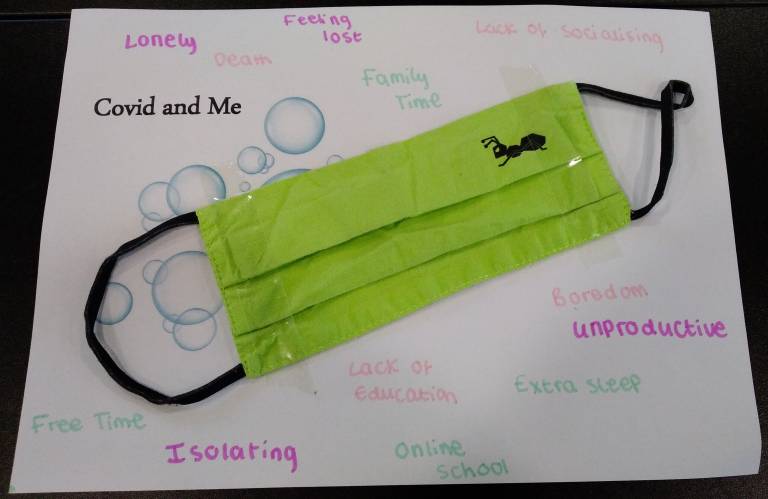BSP releases new report on the impact of COVID-19 on Children and Young People in England
6 December 2023
A team from the UCL Bartlett School of Planning has released a new report on the impact of COVID-19 on Education, Food and Play/Leisure and Related Adaptations of Children and Young People in England.

Led by Prof. Lauren Andres, UCL Bartlett School of Planning in partnership with colleagues at the University of Birmingham, the University of the Free State and the University of São Paulo, the PANEX-Youth project has released its latest report which presents and summarises the key results from the first two stages of the research, with a focus here on England. It builds upon the insights from the global and national mapping exercise the team conducted through desk-based research while bringing the results from the 32 interviews done with key organisations between February and June 2023. It can be read alongside the WP2 Global and National Mapping exercise report.
The pandemic led to an acceleration and combination of everyday pressures on individual families, combined with increased socio-economic inequalities. This had a snowballing impact on four major components of young people’s lives: their ability to learn and access relevant training and skills, their ability to access healthy and nutritious food, their ability to be able to exercise and socialise (i.e. access play and leisure) and their ability to continue developing their confidence and be mentally well.
The report argues that despite the many challenges that young people faced during the COVID-19 pandemic, the voices of (especially vulnerable) children and young people in England were mostly ignored, as this age group was neither considered as a priority nor ‘at- risk’ from a public health perspective. Young people were abandoned but also targeted by divisive health discourses (at least as presented by some parts of the media and in some social media). The lack of support, post-pandemic, reinforced this feeling.
The impact of the pandemic has and will have detrimental consequences for many children and young people in the short and long-term, with many of these not yet visible. The pandemic led to the rise of a COVID-19 generation. The challenges facing this generation have been exacerbated by the ongoing cost of living and inflation crisis with noticeable inequalities amongst regions in England, and between different demographic groups (particularly in terms of income, ethnicity and dis/ability).
Prof. Lauren Andres said: "The impact of the pandemic on vulnerable children and young people is dramatic and heart-breaking and it has been reinforced further by the cost-of-living crisis which exacerbated the need for families to choose between paying for food, heating and/or rent. Young people's voices, rights and needs have been ignored and little attention is still given to them currently. The role of the PANEX-YOUTH project continues here as lessons need to be constructed for and with young people in order for them to be more resilient and better-prepared for future crisis. The built environment (home, neighbourhood, city levels) plays a significant role here as it is the main receptacle through which young people access food, education and play/leisure. It is a duty for built environment experts to engage with those debates."
Read the latest reports
- Executive Summary | The impact of COVID - 19 on Education, Food and Play/Leisure and Related Adaptations of Children and Young People in England PANEX-Youth Work Packages 2 and 3 Report: Mapping and Key Stakeholder Interviews
- Mapping and Key Stakeholder Interviews | The impact of COVID-19 on Education, Food and Play/Leisure and Related Adaptations of Children and Young People in England PANEX-Youth Work Packages 2 and 3 Report
PANEX-Youth is a large-scale research project (2022-2024), whose main aims are to understand how young people adapted during the COVID-19 pandemic and assess the wider impact of such adaptation processes in South Africa, Brazil and the UK (England). It is part of the Trans-Atlantic Platform (T-AP) and is jointly funded by the ESRC, the NRF and FAPESP, gathering researchers from 5 Universities: University College London (UCL) and the University of Birmingham (UoB), in the UK; University of the Free State (UFS) and University of Fort Hare in South Africa; and, the University of São Paulo, in Brazil.
Prof. Lauren Andres is the Global and UK PI. The UCL team includes her and Dr Paul Moawad, and the UoB team includes Prof. Peter Kraftl and Dr Cristiana Zara.
 Close
Close

